Champions Of Pop Culture #2 – Alien’s Ellen Ripley

Ellen Ripley has been portrayed as a feminist icon ever since she took up firearms against terrifying xenomorphs in James Cameron’s mega-hit sequel Aliens. The character already made a name for herself as the sole survivor of the ill-fated expedition to LV-426 in the preceding film Alien, but it wasn’t until she faced her fears that she cemented her badass reputation.

There’s an argument to be made that Ripley was not a feminist icon whatsoever, but rather a positive role model for everyone to emulate, regardless of their gender. Indeed, the attempt to shoehorn her into a political symbol over the years has arguably done a disservice to her character, especially when it comes to what she stood for.
HER EARLY CAREER
Fans of Aliens remember a scene in the first act where Ripley is grilled by Weyland-Yutani suits about the fate of the Nostromo, and her crew. In the background, a series of crew dossiers plays out on a large screen, giving little tidbits of information on each character that were previously unknown.

Subsequent releases of the Alien films on Blu-Ray have included these dossiers as stand-alone extras, which can be viewed in their entirety. It’s here we learn that Ripley was something of a prodigy within Weyland-Yutani, pulling a 9.5 on performance potential. This spoke a lot about her character’s career trajectory.
Ripley seemed to be quite the pilot, having served on several vessels before landing a spot as second-in-command on board the Nostromo. In the Alien universe, the economy seemed to rotate heavily around bloated contracts between Weyland-Yutani and its workers, which probably provided the incentive structure to go on long distance hauls.
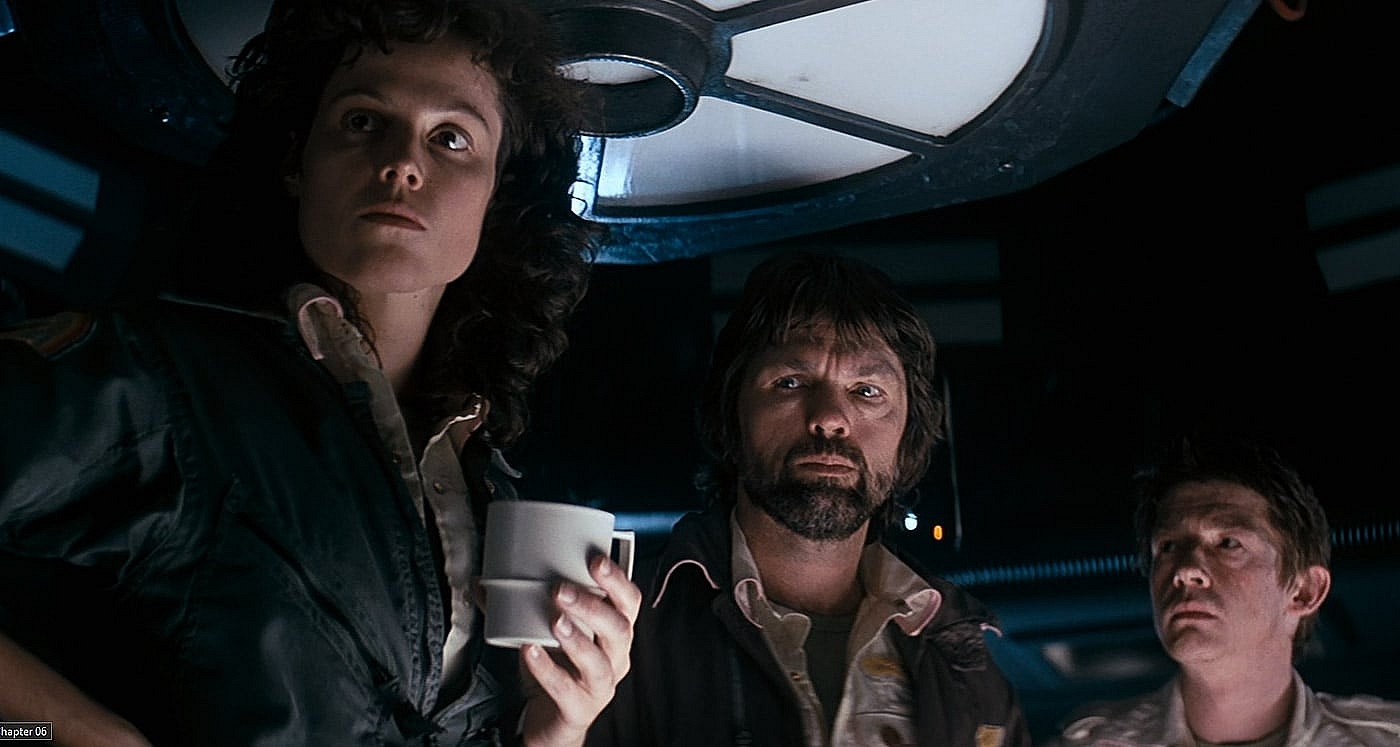
That’s where things start to get interesting. Current Woke messaging essentially tells women that in order to be strong and successful, they should abandon all family pursuits, give up having kids, and crank out a 60-hour work week in order to make something of themselves. At first glance, this seems like Ripley’s forte, except for one little fascinating tidbit.
SHE’S PRO-LIFE
It’s no secret that Ellen Ripley had extremely strong maternal instincts, as evidenced by the lengths she was willing to go to save the life of Newt, who she’d only just met. However, Weyland-Yutani’s official dossier provides a much clearer and more courageous explanation for why she’s so protective of children.
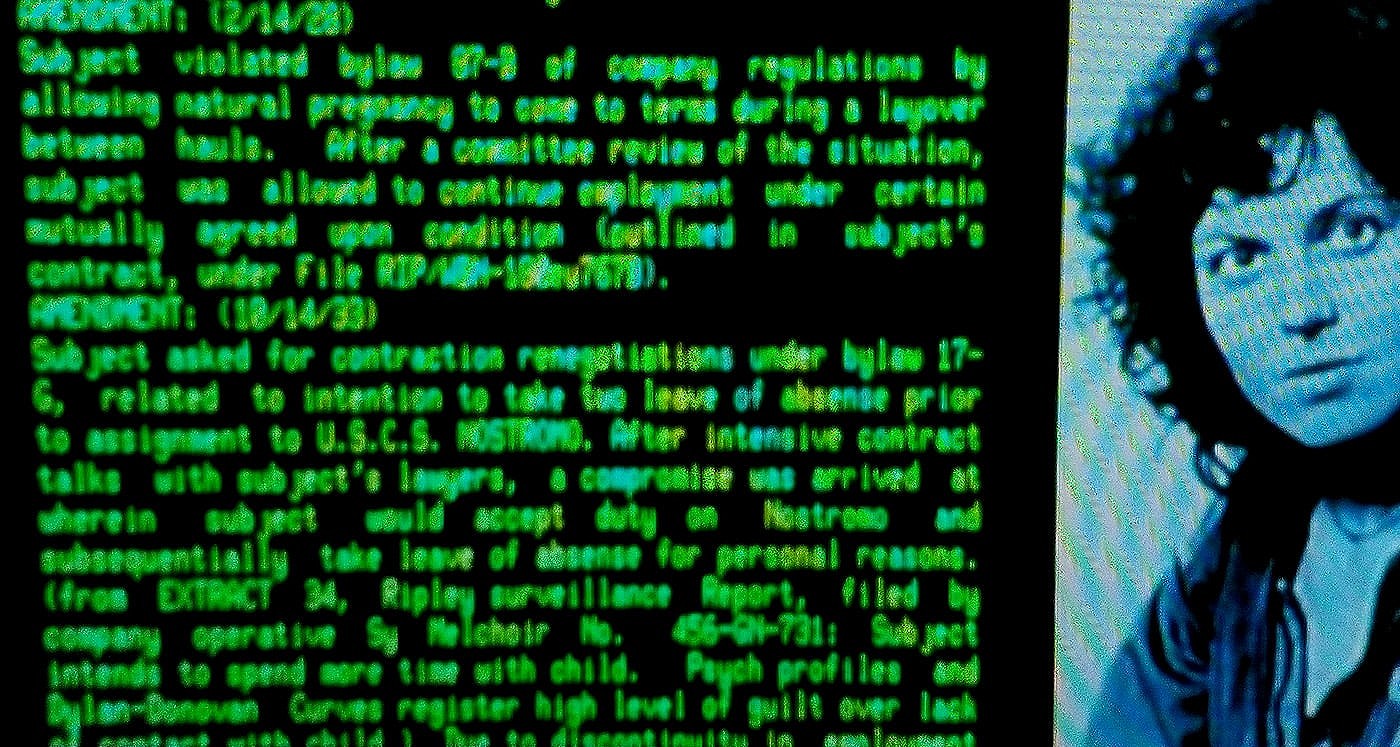
According to the dossier, Ripley broke the terms of her contract with Weyland-Yutani by getting pregnant. Under the terms of the 87-B company bylaw, Ripley would be forced to have an abortion if she got pregnant in between her contractually obligated hauls. This might have been a jab at the 1980s corporate world, which tended to frown upon female staff getting pregnant and taking maternity leave.
However, Ripley defied the company, even at risk of her contract being terminated. She refused to have an abortion, and later gave birth to her daughter Amanda, who is referenced at the beginning of the Special Edition of Aliens. It isn’t known just how tense the standoff was, but it did create a lot of friction between herself and the company.

In the end, Weyland-Yutani backed down and brokered a new deal with Ripley, sparing her job, and allowing her to continue on as a contracted employee. This is particularly fascinating given current Woke standards, where female empowerment supposedly comes from dancing in abortion clinics and posting videos of it on Tik Tok.
Over the last few years, we’ve seen dozens of ultra-feminist celebrities throw “safe, legal and rare” out the window in favor of the notion that a woman is not really a woman, unless she’s had at least one abortion. The burning of the bra has officially been replaced by the violent and grotesque murder of the unborn, done with deep-seated glee and excitement.
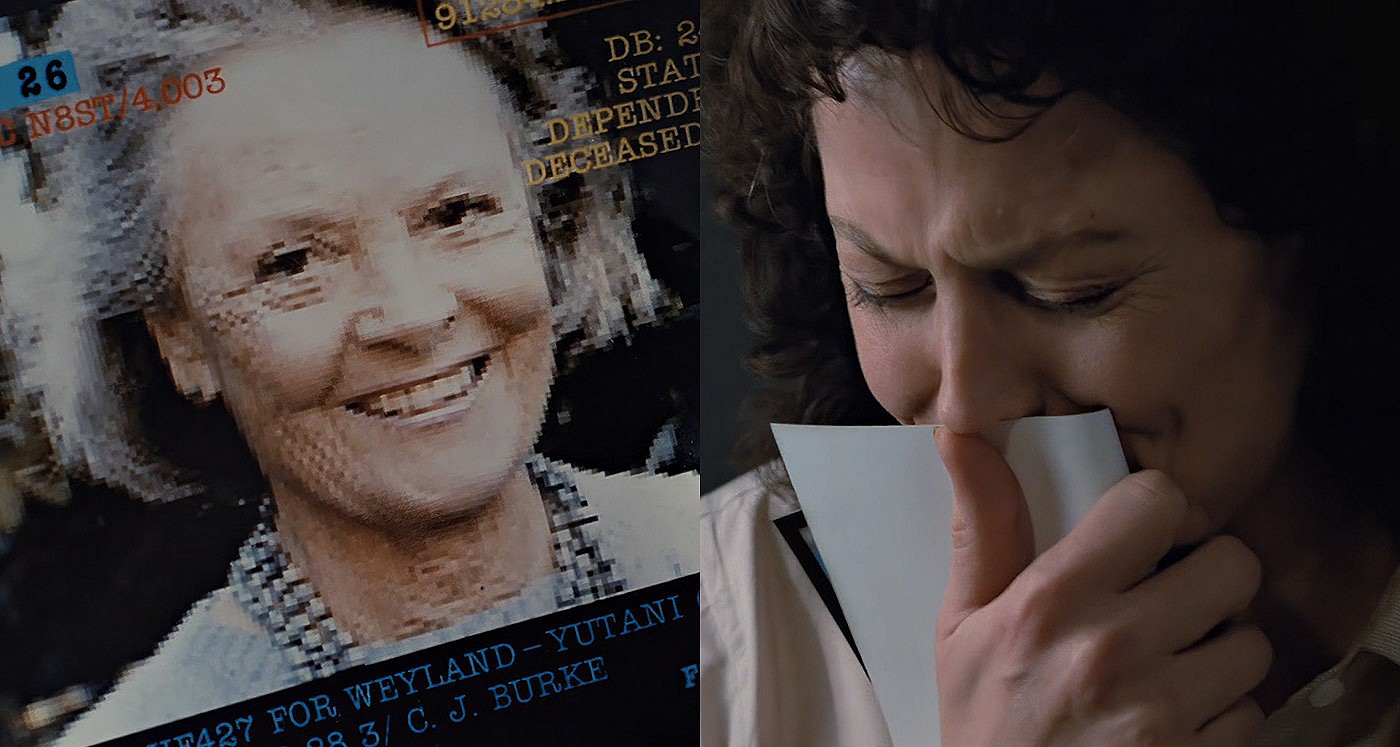
In Aliens, Ripley learns that her 57-year long hyper-sleep has caused her to miss out on her daughter’s entire life. Amanda had died just before Ripley’s EEV was found, and she was faced with the prospect of being out of her time, with no familial ties to help welcome her back into the fold.
Yet, when things go sour on LV-426, Ripley doesn’t turn tail. Instead, she cobbles together a mini-arsenal of Colonial Marine weaponry, and goes straight into the belly of the beast to rescue a little girl who, at that point, might as well be her own flesh and blood. It’s a triumph not of feminism, but of traditional womanhood, and what it means to be a mom.
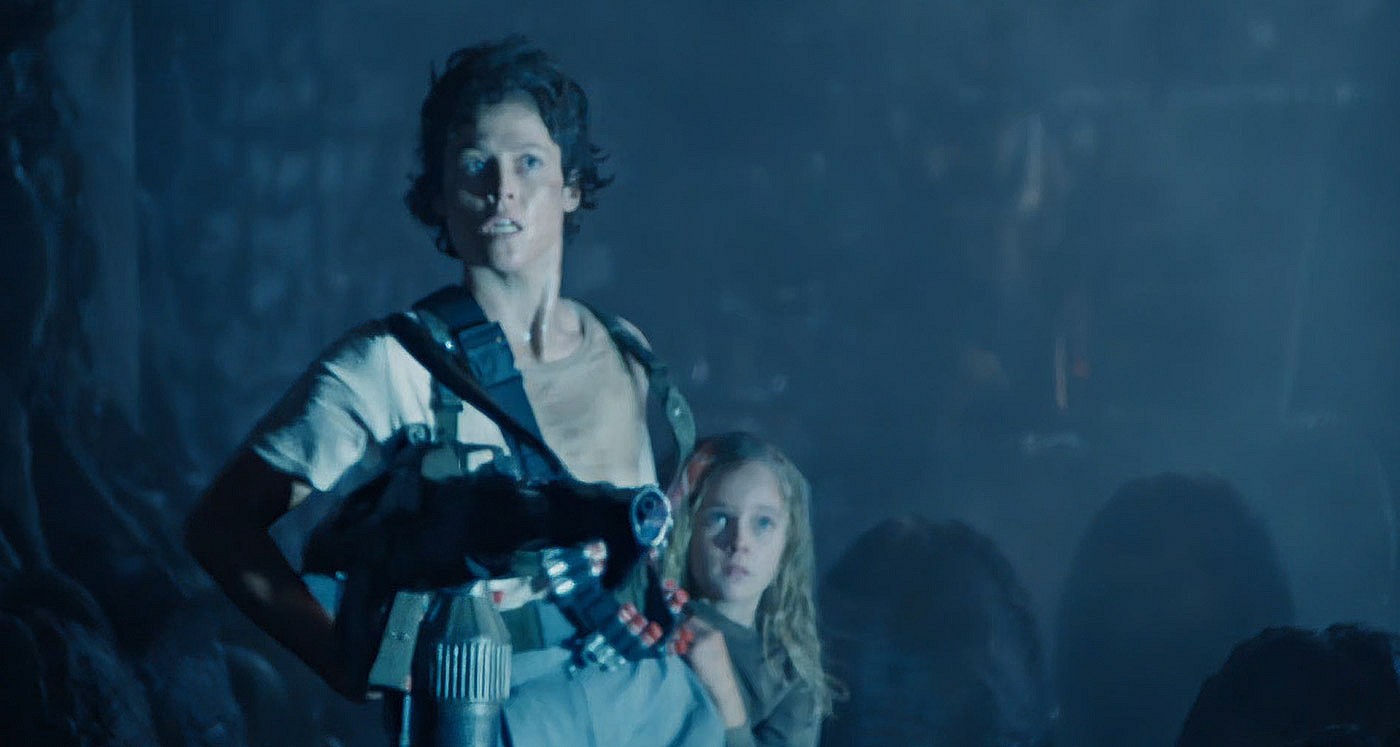
It’s a wonder that Ripley has not been cancelled by the Left for her pro-life stance over the course of the Alien franchise, and that could be chalked up to the obscurity of the official Weyland-Yutani dossiers, which few have even read. To carry a pregnancy to term, even at risk of losing a lucrative job, must be viewed as an act of sacrilege by the modern Left.
THE CHARACTER’S BACKBONE

Dan O’Bannon’s original script for Alien was a bit of a mess, and it’s no wonder it was forced into a rewrite phase. However, the spirit of his original vision remained intact, including the characters themselves, who were purposely written without clearly defined gender choices in mind.
Ripley could have easily been played by a man, but the decision to cast Sigourney Weaver in the role was a stroke of genius. Weaver’s ability to play accessible, down-to-earth characters with vinegar in their veins is part of what made Alien such a hit. She played up the character like any other officer – just one who happened to be female.
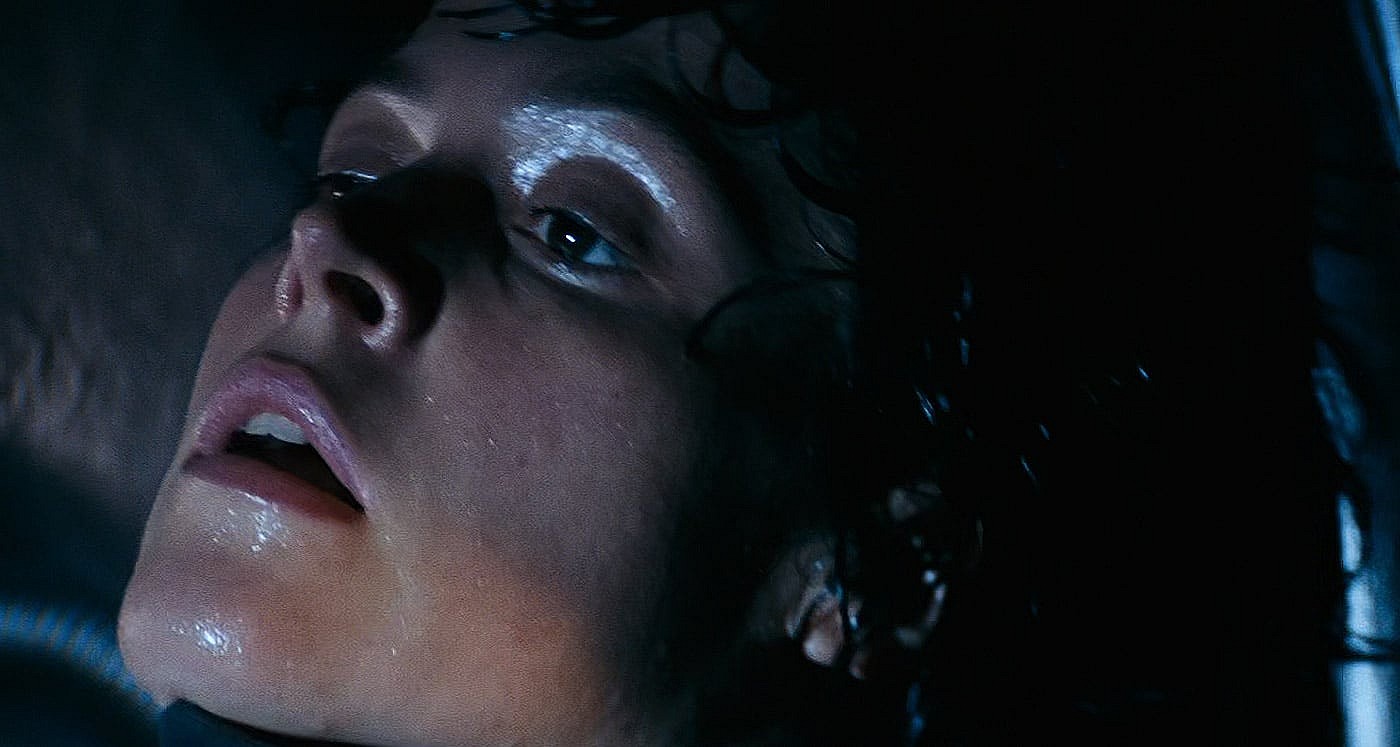
Her fear in Alien was absolutely palpable, and believable for a female character. Yet, she slogged through the terror and stress long enough to escape with her life, and make it back home. Ripley understood the value of getting things done, even when you’re so terrified that you can barely move, and it’s a lesson for men and women, alike.
However, Aliens changed all that. This broken and scarred Ripley was full of anger and hatred for the creature which ruined her life, and when the time came to exact some payback, she didn’t hesitate. At several points throughout Aliens, we witness Ripley defying her victimhood, and becoming a powerful character taking back her own life.

This all culminates in a pivotal standoff between herself, and the dreaded Alien Queen, another matriarch with an axe to grind. Few cinematic catfights have elicited such cheers from the audience as this one, and that’s primarily due to the fact that Ripley has had enough by that point, and is no longer afraid of her enemy.
The victory against the Alien Queen gave Ripley a massive boost in confidence, which came in handy during the events of Alien 3, when she finds herself the only female on a prison planet populated by psychopathic convicts guilty of mass murder, pedophilia, and rape. She’s a vulnerable character in the story, but certainly no lamb.
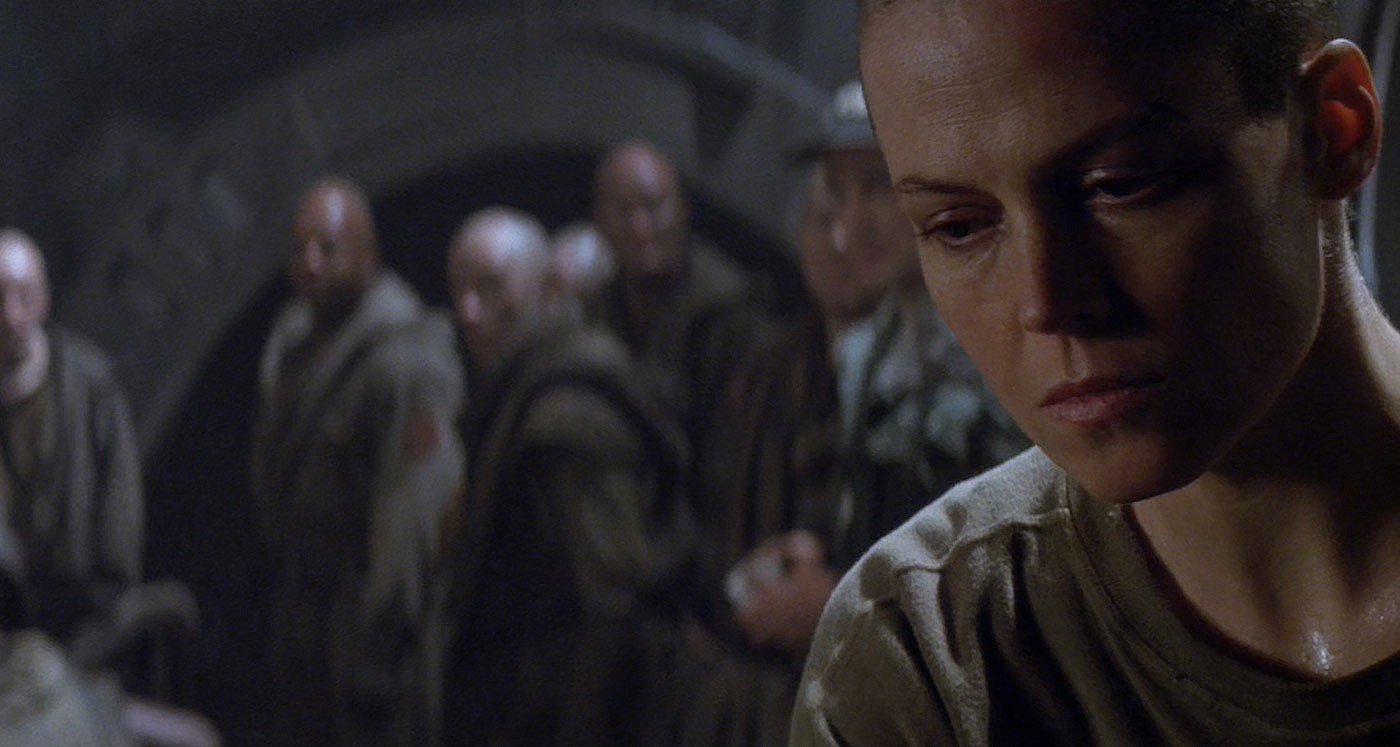
By the time Alien Resurrection comes around, Ripley is far removed from her old self, though she still retains the willingness to pick up a gun and go into battle. Even when she’s faced with the crushing conflict of killing a species that she has been linked to at the genetic level, her heroism and humanity wins out.
NOT QUITE A FEMINIST
Allmovie.com’s review of Aliens says “The female heroine in this series has always been fascinating because of her complete ignorance of her sexuality. This is given an interesting spin at the end of this film when Ripley’s goal becomes to destroy the alien eggs in their nest. A slap in the face to traditional motherhood?”

It’s a humorous take on the character, which posited the question as to whether Ripley was a feminist icon because of her reserved sexuality, and her willingness to “abort” xenomorph eggs. It also misses the point of who Ellen Ripley was, especially given her aforementioned pro-life stance.
The reason Ellen Ripley resonated so well with movie fans across the spectrum is because she never tried to be a feminist icon in the first place. This kind of character development was mirrored in another one of James Cameron’s characters – Sarah Connor from The Terminator.

Both end up doing whatever it takes to protect their children from the dangers that are hunting them, yet neither of them lose sight of what it means to be a mother. It’s the precise opposite, in fact. Neither character wants to “kick ass” for the sake of battling the Patriarchy. They do it because they have to.
There’s a pivotal and highly underrated moment in Terminator 2 when Sarah rebukes SkyNET creator Miles Dyson, saying “You don’t know what it’s like to really create something, to create a life! To feel it growing inside you, all you know how to create is death and destruction!”

Ripley held a similar outlook, which runs afoul of the Left’s skewed and cancerous ideology regarding both gender roles, and the nature of what it means to be a woman. Motherhood is now frowned upon and looked at with contempt and disgust by radical Left feminists, which is antithetical to the entire notion of being a woman, in the first place.
Today’s feminist pioneers and icons have embraced masculinity as the path forward to success and female empowerment, which is a hell of a take, given the reason for the initial first-wave feminist movement. Ellen Ripley was a mother, first and foremost, and someone who wanted to provide the best life for her child, as opposed to chasing her own selfish desires.
NOT A ONE-WOMAN WRECKING BALL
The modern third-wave take on “strong independent female” typically revolves around the “woman needs a man like a fish needs a bicycle” schtick, mixed with a physically weaker female character tossing a man four times her size through a wall. It’s become ridiculous on its face, which is why ultra-Woke pan scrapings like The 355 fail out of the gate.
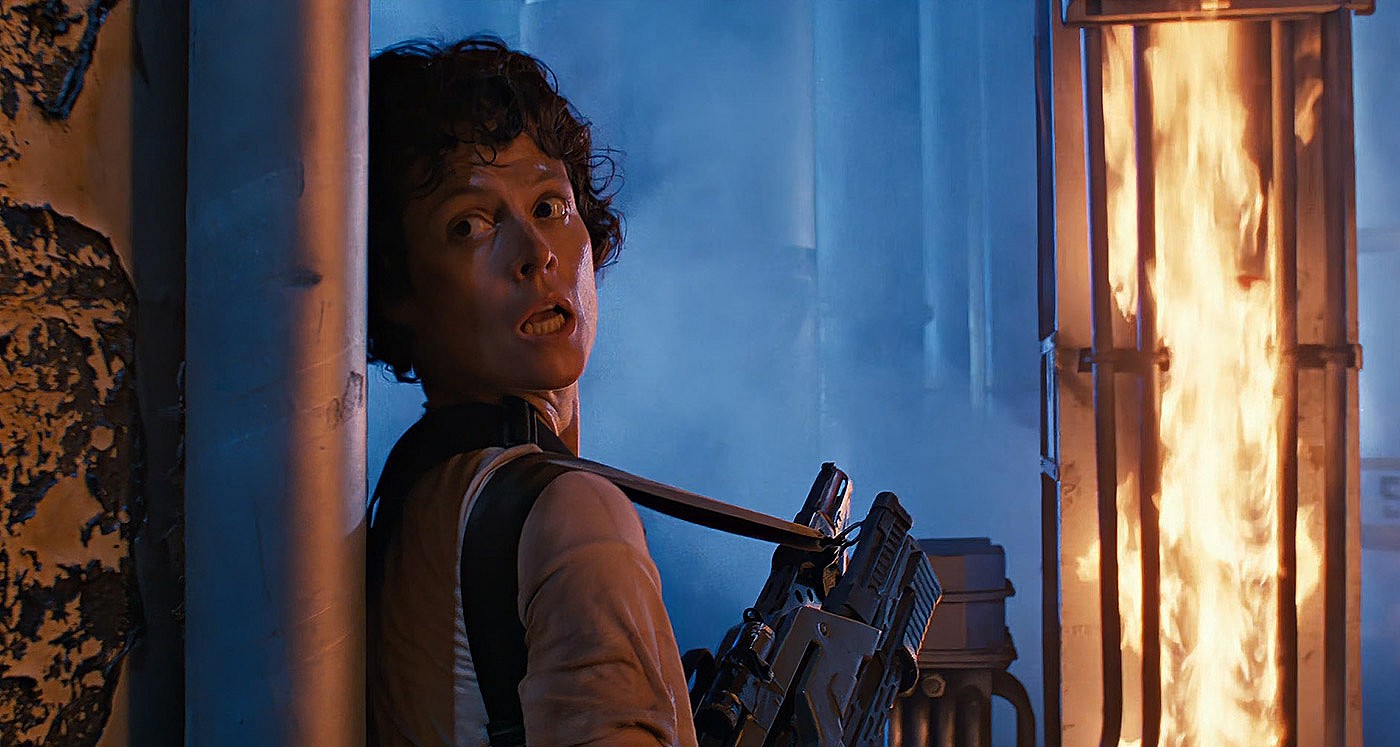
By contrast, Ripley could hold her own, within the confines of realism and plausibility. The xenomorph in Alien was the great equalizer, and the lack of anything resembling deadly weaponry meant that every character was equally at risk of dying.
Ripley was never going to execute a perfect backflip with twin shotguns in either hand, in order to set up a feminist hero shot.
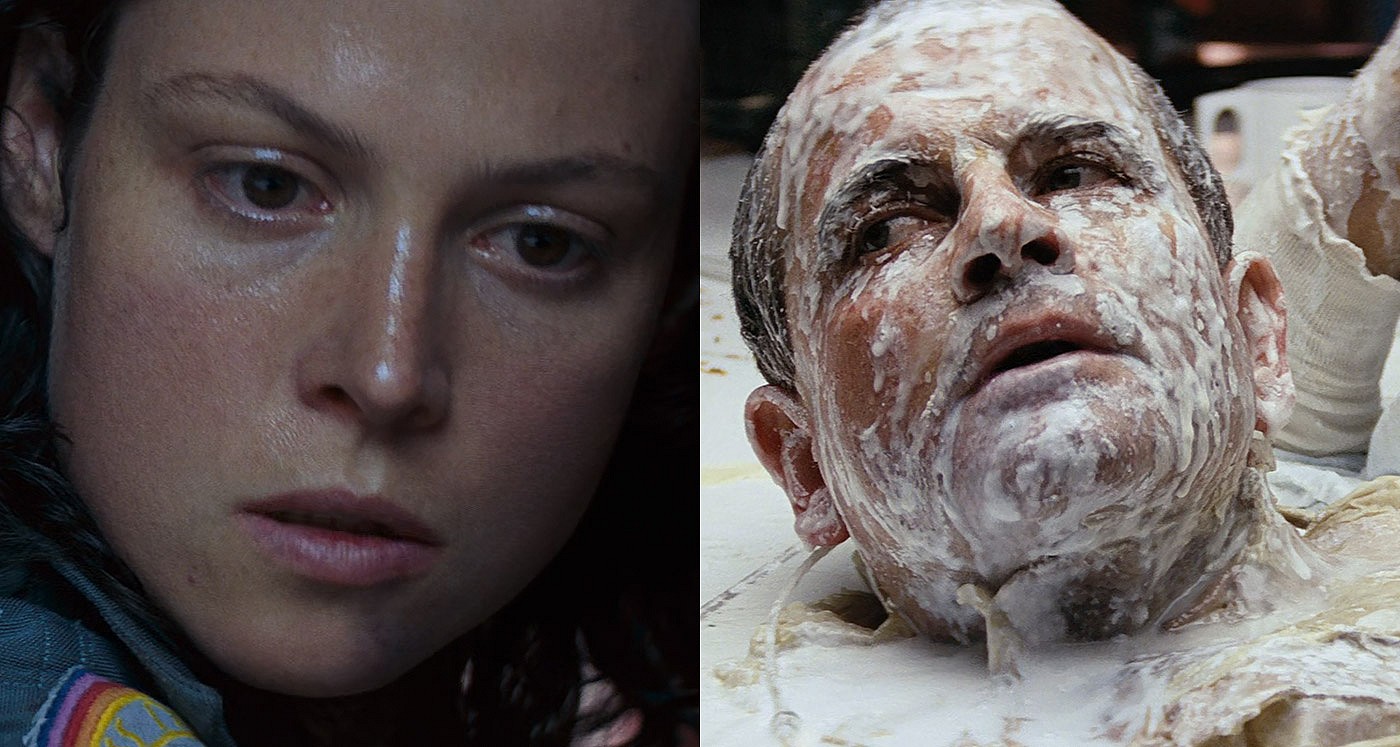
When it came to facing the two antagonists in the film, she handled herself admirably. First was Ash, the android who nearly killed her when she found out the company’s dirty little directive regarding the xenomorph.
Even after the scuffle had ended, Ripley showed no fear towards Ash, which signified her strength.

Her method of taking down the xenomorph in the cramped confines of the EEV was worth every cheer. It was a smart play to blow the creature out of the airlock, but Ripley had the sense to arm herself with a harpoon gun that ended up saving her bacon.
Even under extreme temple-throbbing duress, she relied on her wits and intellect, as opposed to some cheap takedown.

In Aliens, Ripley squared off against two new antagonists – company suit Carter Burke, and the Alien Queen.
In Burke’s case, Ripley was able to intimidate and threaten him physically, which made perfect sense given his small stature, and stuffy corporate background. Also, he was a coward, to boot.

However, when she tried the same thing against Dillon in Alien 3, he nearly put her through a wall. When Ripley landed a hit, it felt plausible and authentic.
When she took a knock in return, it was done within the boundaries of common sense. That’s not misogyny on the part of the scriptwriters. That’s life.
WHY SHE SHOULD BE EMULATED
As far as champions of pop culture go, Ripley is a shoo-in for the Queen’s crown.
Her courage in the face of sheer, primal terror should be lauded by both men and women, especially in an age when moral cowardice and chronic navel-gazing seem to be running roughshod throughout our society, and culture.

Ripley embodied what real feminism looks like – a woman who wasn’t afraid to be a woman, and didn’t need to act like a man in order to move ahead.
Instead, she used her brains, she worked hard, and she stuck to her guns, even when her own employer had her up against a wall.

And finally, it would be a sin not to acknowledge her ultimate sacrifice in order to keep the xenomorph creature out of Weyland-Yutani’s clutches. Even when tempted with the prospect of living, Ripley knew that the danger to the galaxy was too great, and she couldn’t bear the thought of being responsible.
Ellen Ripley did the right thing, every time. She didn’t fall to pieces when things went to hell, she treated everyone as an equal, she chided those who deserved a kick in the arse, and she knew the inherent value of having a strong moral compass to fall back on when things got tough.

More of these women in society, please.
NEXT: Champions Of Pop Culture #1 – Predator’s Dutch Schaefer
